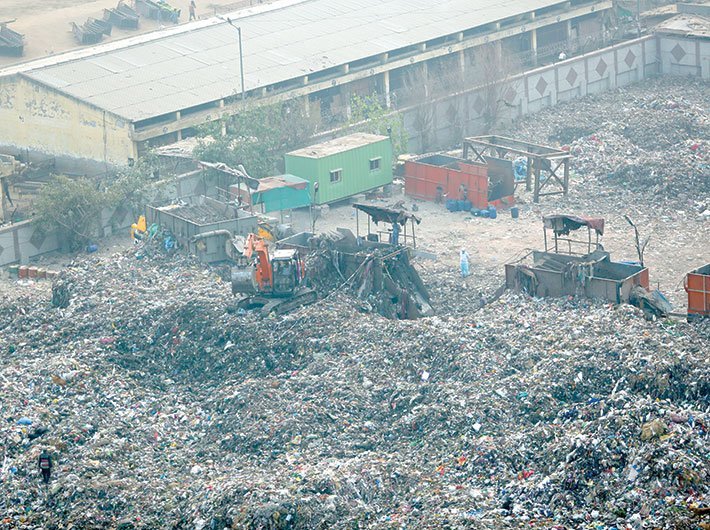New CSE report shows its production went up by 80% during 2000-15, adding to climate change
Plastic is arguably the most ubiquitous material of our times. In this Age of Plastic, it might seem its use can’t go up any further – and yet it keeps going. Between 2000 and 2015, global production of plastic increased by a whopping 79%. The total mass of plastics on our planet is now twice the mass of all living mammals, and about 80% of all the plastics ever produced continues to remain in the environment.
There is an intimate connection to climate change as well. Plastic production has quadrupled over the last four decades and if this trend were to continue, the greenhouse gas (GHG) emissions from plastics alone would reach 15% of the global carbon budget by 2050. In fact, if the plastic industry were a country, it would be the fifth largest greenhouse gas emitter on Earth.
India consumed 18.45 million metric tonne (MMT) of plastic in 2018-19; and 59% of it went into packaging. This means that of all the petrochemicals produced in the country (29.1 MMT), more than 37% was used to manufacture plastics for packaging applications.
These mind-numbing data and information is compiled from national and international research in a new report by the Centre for Science and Environment (CSE) which was released here on Tuesday.
Bringing home the omnipresent character of the ‘plastic problem’, the report was released at a national conclave titled ‘The plastic life cycle’ that brought together key regulators, waste management professionals, urban and town planners, representatives from NGOs and journalists. The report was released jointly by Leena Nandan, secretary, ministry of environment, forest and climate change, Parameswaran Iyer, CEO, NITI Aayog, and Sunita Narain, director general, CSE.
“We are given to understand that the problem of plastic is a waste management issue and not a material production issue because we can recycle it, burn and bury it, or ship it to other countries where it can be handled. But it is not that simple. We have crossed the last frontier on plastic with our current production and consumption patterns. Plastic has not gone away. Plastic that we produce on land is now ending up in our oceans, and from there and elsewhere, into our own bodies,” Narain said.
Releasing the report, Nandan pointed out that while the issue of managing plastic waste was indeed an extremely complex one, it was not something that cannot be resolved. In fact, efforts to mitigate the ill effects of plastics has gained traction through the introduction of policies such as single-use plastic ban and extended producer responsibility. The Swachh Bharat Mission 2.0 has listed plastic waste management as one of its key agendas.
Carrying on from where Nandan left off, Parameswaran Iyer spoke about three key areas where intervention needed to be focused. “These three key things are governance of plastic and plastic waste management, ensuring behaviour change among people so that they are involved in this management, and following the tenets laid down in prime minister Narendra Modi’s Mission LiFE (Lifestyle For Environment), which tells us what communities can and should do,” he said.
The CSE’s report “is an effort to understand the plastic life cycle and the plastic pollution challenge from the perspective of the different stakeholders who are integral to the landscape.” The report, thus, is an extensive assessment of the roles played by stakeholders ranging from the petroleum, petrochemical and plastic industry; the biodegradable and compostable plastic industry; and producers and brand owners to retailers and consumers; the formal and informal sector recyclers and aggregators; and end-of-life solution providers.
Offering the rationale behind the report, Atin Biswas from the municipal solid waste management unit at CSE says: “The coming years are going to be critical for defining the way we approach this enormous challenge of plastic waste. The technical capacity of the state governments, ULBs, and other stakeholders would play a pivotal role in achieving a plastic waste-free nation. It is, therefore, imperative to understand the life cycle of plastic to strategise and streamline our approach towards managing plastic waste not only in India, but across the globe.”
